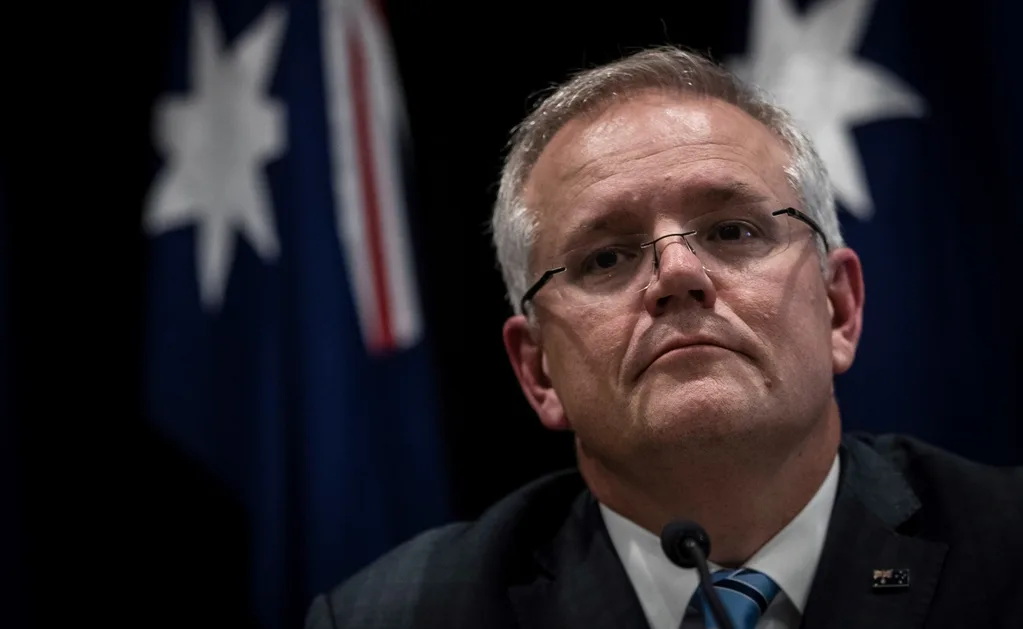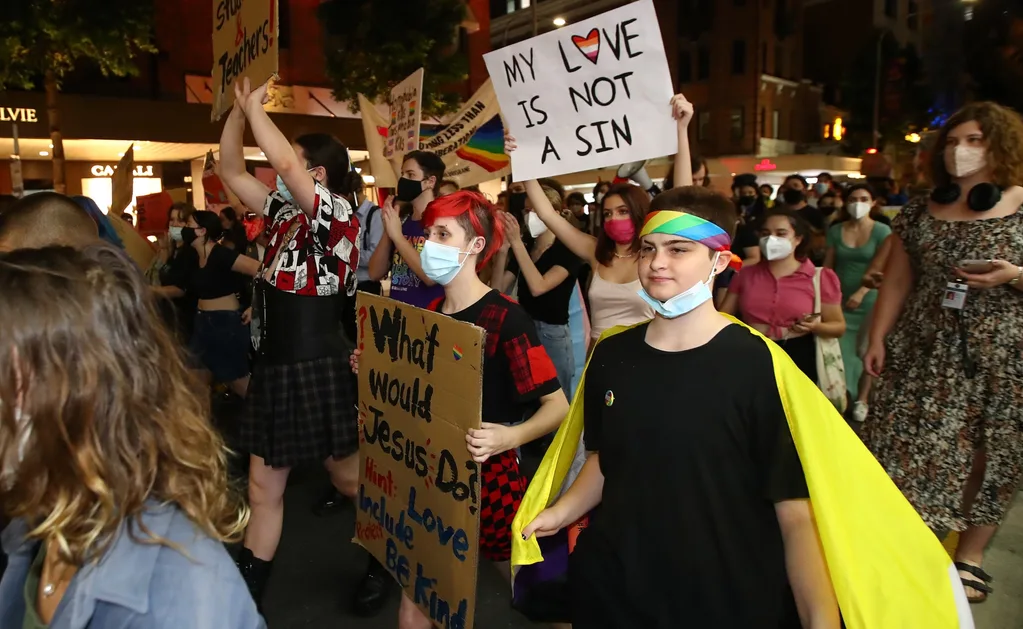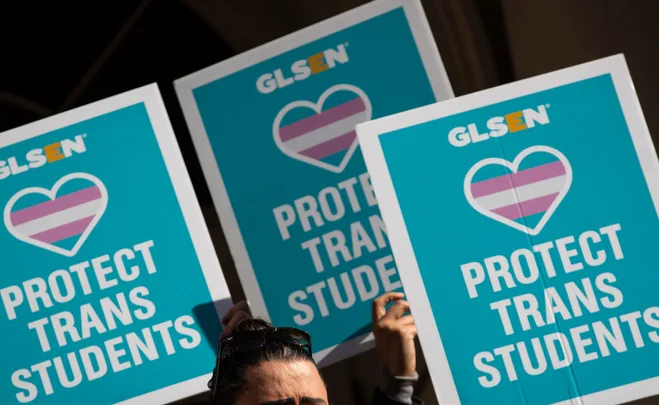Trigger warning: This article discusses suicide and might be triggering for some readers.
In early February 2022, a legislative reform to prevent religious schools from discriminating against or expelling students for being gay or gender diverse was introduced to government.
The amendment has been riddled with controversy and backlash due to what the current legislation stipulates—while this week, amendments were made to protect gay students from this bill, it left trans students out in the cold.
Trans people have some of the highest rates of self-harm and suicide in the world, and a bill to discriminate against some of the most vulnerable people in Australia—trans children—prompted five government backbenchers cross the floor in support of proposed amendments.
It also saw an outpouring of personal stories, including from Liberal MP Trent Zimmerman, who called this week “one of the most difficult weeks of any in my time in parliament”.
Here, everything you need to know about the Religious Discrimination Bill and what it means for LGBTQI+ students.
What is the Religious Discrimination Bill?
The Religious Discrimination Bill 2022 has been introduced to government due to the provisions in the exisiting Sex Discrimination Act, which was last updated in 2013.
Section 38 of the act stipulates that a religious educational institution can legally discriminate against a person on the grounds of their sexual orientation, gender identity, marital or relationship status or pregnancy. They can do this as long as the discrimination is “in good faith in order to avoid injury to the religious susceptibilities of adherents of that religion or creed”.
In 2013, the Labor government overhauled this section to protect people from being discriminated based on their sexual orientation and gender identity. But per The Sydney Morning Herald, exemptions for religious educational institutions were changed in order to include these people.
So why is it changing in 2022? Well, Prime Minister Scott Morrison promised changes to this bill, and given that it’s a federal election year, he’s attempting to tick this off quickly. The new Religious Discrimination Bill is adding a caveat stipulating that: “it is unlawful for a person to discriminate against a student on the ground of the student’s sexual orientation by expelling the student on that ground”.
The problem with this? It doesn’t include transgender, and all LGBTQI students.
So what’s happened since it was introduced?
This week, the Morrison government introduced amendments that would protect gay students from this so-called ‘anti-discrimination’ bill, but would still allow religious schools to discriminate against gender diverse students—a.k.a. vulnerable young people who are realising they may be trans, non-binary, or gender non-confirming.
And while hundreds of thousands of people across Australia have vocalised their disgust at what this bill represents for the trans and LGTBTQI+ community, the Morrison Government has pushed forward to pass it into law.
On February 9, parliament sat through the night in order to pass the bill through the Lower House. But this didn’t happen without a battle.
No less than five Liberals crossed the floor to vote with Labor and the crossbench, which supported independent MP Rebekah Sharkie’s proposed amendment to abolish the right of religious institutions to discriminate against gay and transgender students.
Liberal MP Bridget Archer, who was one of the five to cross the floor, had previously said of the bill: “After so much progress, how did we get back to a place where we ignore the harm we place on children when we tell them they are ‘other’, ‘less than’ and do not deserve rights and protections afforded to others? I fear it may risk lives.”
Per the SMH, Morrison hoped the amendment to protect the rights of gay students would have been enough to appease the liberals who were on the fence (it clearly wasn’t, according to the five who switched).
Now the bill will proceed to the Senate, where it will ultimately be decided if the caveat will be passed into law without protection for trans or LGBTQI+ students.
Of course, this doesn’t mean it’s over. The bill was met with unrest from State Governments, with NSW Premier Dominic Perrottet saying, “I’ve said from the outset when I was previously the Treasurer, when this bill was introduced, that I don’t believe it’s necessary to have this legislation,” he said.
“We haven’t needed it for over 100 years and I think in many ways it might create more problems than it’s trying to solve.”
Furthermore, the people of Australia certainly won’t go down without a fight.

Where to protest against the Religious Discrimination Bill
Protests across Australia have already began, with the slogan #KillTheBill ringing out from all corners both in city centres, and across social media.
If you wish to attend a protest safely, below is a list of those that will go ahead over the coming days. Melbourne, Brisbane and Canberra held protests earlier this week, and we’ll update this list if any further protests are confirmed.
- Adelaide: 5pm Friday, February 11 at Town Hall.
- Sydney: 1pm Saturday, February 12 at Town Hall.
- Perth: 12.30pm Saturday, February 12 at Perth Cultural Centre.

If you or someone you know needs help you can call Lifeline on 131 114 or Beyondblue 1300 224 636.










